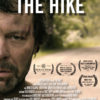
Filmmaking | How to Be a... | How To's
How to Be a… Director
Written by Tiffany Patrick | Posted by: Anonymous
This month NewEnglandFilm.com kicks off a series where every month we ask writers, directors, cinematographers, and other film specialists at the top of their game how they got started, how to pick the right project, and why it is so important to network. We are kicking off the series with this first installment, "How To Be A Director." NewEnglandFilm.com recently talked to James Gilmore, a documentary filmmaker at Acadia Pictures in Eliot, Maine, and BBT Films producer/director Bill Humphreys about what they would do differently and how they promote themselves, find work, and stay in touch with the community. As one quickly finds out, there is no single recipe for becoming a successful director, but rather many roads to success.
TP: Is it important when you are first starting out, or even when you are an established director, to carefully pick the projects you work on, or is any project a good project?
Gilmore: Any project CAN be a good project for a price, but if you are not getting paid much, it better be something you are passionate about.
Humphreys: I think that every project you work on has value no matter what the content. You can learn new techniques, cultivate new ideas, and create new methods of approaching story content from every script you work with and from every shot you frame or edit. In the long run you will begin to cull out projects that you know will not give you room to grow or hold no intrinsic value to you. But in the beginning — be hungry, eat it up, and when your hunger fades, you can start being choosy.
TP: What is your definition of a director? What are three of the most important functions of your job?
Gilmore: The director is responsible for the vision of the film. He/she is the author, not in terms of writing, but in terms of the overall image. I think it’s important to have the ability to think in pictures, have the ability to communicate your vision, and know what’s worth fighting for… and what is worth compromising.
Humphreys: A director is a storyteller, first and foremost. A director is also a craftsman. In the area of dramatic film/television, you have actors to help you craft the material. The director must be able to communicate with other people and do so on their level, on their terms. If you can’t get your ideas across to an actor, then they can’t interpret those ideas. In documentary, the craftsmanship is a bit different as you make use of many other types of material such as photographs, film, and interviews. A director must be able to clearly visualize a scene or story line in their head and communicate that vision to others. A director must be a good manager of sorts as he/she has to juggle all aspects of the production within a timeline and budget. Storyteller, visual communicator, and manager — I guess those are the three top functions that make up a director.
TP: How important is networking in this business?
Gilmore: I wouldn’t know. I’m lousy at it. I’m basically quite shy.
Humphreys: Networking is a lifeline unless you’re independently wealthy and can pay for everything out of your own pocket. The more people you know, the better off you are.
TP: How do you promote yourself?
Gilmore: Web site and word of mouth.
Humphreys: Self-promotion is difficult. It’s hard to stay in a mind frame that is self-centered. But it’s a necessity. Networking is good promotion — keeping your portfolio reel updated is important so it’s available when people ask for it. Pick up the phone and call people every week. Your best promotion is word of mouth — from those people you know, who know you, and who know others who can make things happen. Never stop talking to people.
TP: Did you have a mentor, or someone you worked under consistently to gain experience and skills?
Gilmore: Not consistently, but I did have people that moved me forward in my filmmaking career. A theatre design professor named Larry Jaquith kept me believing in the possibility of making film for a living. New Hampshire Public TV executive producer, Bill Humphreys, had the good sense to leave me alone to make my projects — and he supported them with management! Filmmaking partner Neil Novello helped keep me sane and challenged my work as time went on.
Humphreys: Yes, I worked for quite some time with Edmund Penney in Los Angeles. Ed is a documentary filmmaker with more years of experience and more life stories than I think I’ll ever have. He’s an Academy Award nominee and has received international recognition. He was a junior writer on the Ten Commandments under Cecil B. DeMille. Ed is a wonderful man, very kind and a great director.
TP: Did you start out as a director?
Gilmore: Yes. I was directing 8mm movies even in grammar school. It was the only way I could get girls to notice me — they all wanted to be in a movie, you know…
Humphreys: No, I started out as a stagehand moving sets and props around. The first show I walked into was the Hobo Kelly show — a live, early morning, children’s show in LA. Romper Room followed it immediately on the air. I did that gig for two years before I started directing.
TP: Where do you go to keep up with the industry? What organizations do you belong to, what magazines do you read?
Gilmore: "Weekly Variety", International Documentary Association, popular culture, conferences.
Humphreys: I read "Broadcasting" for the TV side of my "up-keep" I subscribe to "Facets" for the film side of life and "American Theatre" for the keeping in touch with live theatre. I also pay attention to film and television sites on the Internet — "BackStage" magazine has a good site with lots of good information on the industry. "Wired" is good. I belong to AFI, AFTRA, SAG, and AEA. They are always sending out information about what’s going on.
TP: Is there anything you would do differently, looking back on what you have accomplished so far?
Gilmore: I would not have stayed so long in public television… but generally I’m happy with where I’ve come from and where I am today.
Humphreys: All I’d say is take more risks. The projects I’m proudest of have involved taking risks and they’ve always paid off.
TP: Are there lessons that you have learned that would perhaps be useful for up-and-coming directors to hear?
Gilmore: Robert Browning says it best: "A man’s reach must exceed his grasp, or what’s a heaven for?"
Humphreys: Trust your instincts. Trust yourself. If you’re afraid of trying something, that’s the reason to try it. Keep your project’s vision clear to yourself. Listen to others and use suggestions that make sense to you and which fit your vision.
TP: Are there different types of directors — besides good and bad?
Gilmore: Sure. There are sane directors and insane directors. I think I’m pretty sane. At the end of the day, I stop and go on with life.
Humphreys: Yes, some are very good technical directors, meaning they work by the book. Some are strictly visual; some are strictly sound oriented. Some of the best documentary directors I know should never be allowed to direct actors and the same is true the other way around. It’s important for a director to know their personal strengths and weaknesses.
TP: What traits make a good director in your experience?
Gilmore: Independence, passion, reason, organization… to name a few.
Humphreys: Being able to listen to others well. Being able to communicate ideas clearly to others. Being able to not piss people off. Being open to new and different ideas. Being nonjudgmental. Being able to embrace all facets of the human condition.
TP: What relationships on set are of critical importance to you and why?
Gilmore: You’ve got to have somebody (an AD or whatever you want to call him/her) willing to support you in whatever crazy thing you want to try. And you need a producer that respects you. After that, anything goes.
Humphreys: My relationship with the DP, LD and the Sound Recordist. Without sight and sound you are dead in the water in postproduction. Also a good continuity person is vital. If you don’t cover your intended scenes well, then you’ve nothing to cut to during the edit. Continuity keeps you on track.
TP: Let’s say you’re talking to a young director, just getting started here in the New England film community. Complete these sentences:
TP: Whatever you do, don’t…
Gilmore: Whatever you do, don’t start things you can’t finish.
Humphreys: Whatever you do, don’t give up or compromise your integrity.
TP: Whatever you do, you must…
Gilmore: Whatever you do, you must always make something you enjoy watching yourself… you are probably going to be watching it for a long, long time.
Humphreys: Whatever you do, you must always be persistent, believe in yourself and your abilities without becoming egotistic. Tell meaningful stories.










